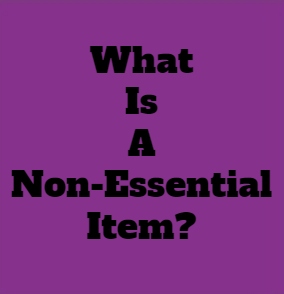

By Sunil Garodia
First publised on 2022-12-21 10:50:47
The Centre
has proposed to raise import duties on non-essential items. There can be no
argument over this. If Indians can live without some non-essential, luxury items
but are yet willing to import them they should be ready to pay a higher price
for them. But the dispute is over the definition of non-essential. In the latest
proposal, non-essential items have been sought to be defined as items for which "adequate domestic manufacturing capacity" exists. In other words, if an item
is being produced in India and if it is being produced in quantities sufficient
enough to address the demand for that item, than for the purpose of the latest
proposal that item will be considered non-essential and imports of such items
will carry a higher import duty.
The
government proposes to identify such 'non-essential' items through a 'granular' assessment by individual ministries who will then make a list of items that are
being manufactured in the country but are still being imported. It will not be
assessed whether these items manufactured in India are of the same quality or value.
Just the fact that they are being produced in India and still being imported
will be enough for the imported items to carry higher duty.
If the idea
is to protect domestic industry by higher import tariffs then this move is not
good. There are two parallel ideas being promoted by the government. The first
is Make in India and the second is Atmanirbhar Bharat. Both have noble intent.
But if tariff barriers are erected, it will work to our disadvantage. The
country should only produce items which it can do best and at the optimum cost.
It will then be competitive and will be able to export those items. Items which
it cannot produce well (in terms of quality and pricing) should be allowed to
be imported. Make in India will only
succeed when we work on our strengths and true atmanirbhata is not in being
self-reliant in all things but in things which we can produce well and export
to the world. The rest we can import at lower costs. We can then divert the
capital and infrastructure used for making these 'non-essential' items to more
productive uses. That would work to the best of our advantage. It has to be admitted
that no country in the world will ever be able to produce all it needs locally.
That is why import barriers, except in cases of obvious dumping by other
countries, are disadvantageous for
global trade.











